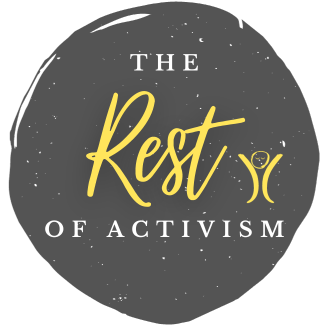On… Grief #1
Is there a right way to feel our climate grief?
It seems right that the first Climate.Emergence blog post, On… Black Lives Matter, would talk about my Grandma.
She would have been one hundred this year.
My Grandma died nearly twenty years ago and not a day goes by when I don’t notice her absence.
But what does my dead Grandma have to do with climate change?
Quite a lot, it turns out.
As a fragile fledgling teen, I coped with her sudden death by doing what I thought would make her proud. I became religious, because she was religious. I learned to craft because she crafted (some of the results of my crafting therapy are here). And I struck a deal with life.
If I am the best person I can be, you’ll bring her back again, right?
It was a bizarre line of thinking, but one that apparently isn’t that unusual.
I’ve been reading Sasha Bates’ excellent book, ‘Languages of Loss.’
After the sudden death of her husband, Sasha had to put her psychotherapy training through it’s paces. She writes beautifully and with great vulnerability about the task of learning to live with grief.
And bargaining, it turns out, is a common part of the grieving journey.
So what did I do, some years ago, when I first came across the catastrophe waiting for us in climate change?
I turned to what I knew.
Life, if I give everything to this cause, you’ll fix it, won’t you?
It was basically a bad case of burnout waiting to happen, because the climate emergency isn’t something that can be stopped by the will power of one person, or even of many people, all on their own.
Perhaps my newfound eco-warrior identity seemed like a better response than pretending that climate change isn’t happening, or becoming so depressed by it that I gave up all together.
But in reality, it was another way to run away, or at the very least to stay in control of something I cannot control.
And of course, the grief eventually catches up.
Trying unsuccessfully to leapfrog the grief of losing my Grandma should have taught me that mourning isn’t something that can be avoided. Grieving takes time, and it’s many paths are not linear.
This is particularly so with climate grief because there is no emotional framework for coming to terms with the prospect of human civilisation falling off a cliff edge. Of the loss of at least 10,000 species a year. Of the fact that we’re doing it to ourselves.
But for those of us living with bereavement and loss- and let’s face it, that’s most of us- we do have our existing experiences to draw on.
What helped you most when you lost a loved one? Or when you had to come to terms with the loss of a job, a relationship, an ability, a dream? How did you honour the pain?
Because chances are, the wisdom you gained through those grieving experiences will help you with climate grief.
Maybe it was in the rituals of loss- funerals, leaving do’s, packing your stuff in a box.
Maybe it was in a worthy cause, another person you could comfort, or someone you held it together for.
Maybe it was a cosy blanket, a weekend by the sea, or a call with your friend.
For me, it was all of those things and more. But really it was learning to bear with the grief, because to feel it was to no longer find myself completely controlled by it. To honour it, rather than to run from it.
As We’re Going on a Bear Hunt tells us, we can’t go over it, we can’t go under it, we have to go through it.
What does going through our climate grief look like?
Here are three suggestions;
Share the load- not everyone will be willing to take the journey with climate grief yet, so build a circle of trusted people with whom you can share the load. Naming what we feel, and seeing understanding in others’ faces, can be an immeasurably healing experience.
Grow your relationship with nature- the planet isn’t a problem to be fixed, but a living, breathing entity with whom we are interacting every day. We can protect ourselves against burnout by spending time with that which we are working to protect.
Make something- Create a poem, paint a picture, write a blog, share a tweet, write to your MP, try a vegan recipe… give outet to your grief. Help it to find shape and form in the world, so that it is a little less heavy to carry.
So, is there a right way to feel our climate grief? For sure, there are responses that are more helpful than others, but what seems most important is to be gentle- and honest- with ourselves. We’ll the emotional resilience we can muster for the journey ahead.
I’ve called this blog Grief Number 1 because this is a topic I expect to return to again and again. This one isn’t going away.
Want to delve deeper? Take a look at my recommended reading on climate grief.
About Me
I’m Jo, formerly the founder Director of national climate change charity, Hope for the Future. I am currently researching eco-anxiety and how we can build emotional resilience in our response to the climate emergency.
Welcome to Climate.Emergence- a place to emotionally process what on earth is happening to us and our planet.



